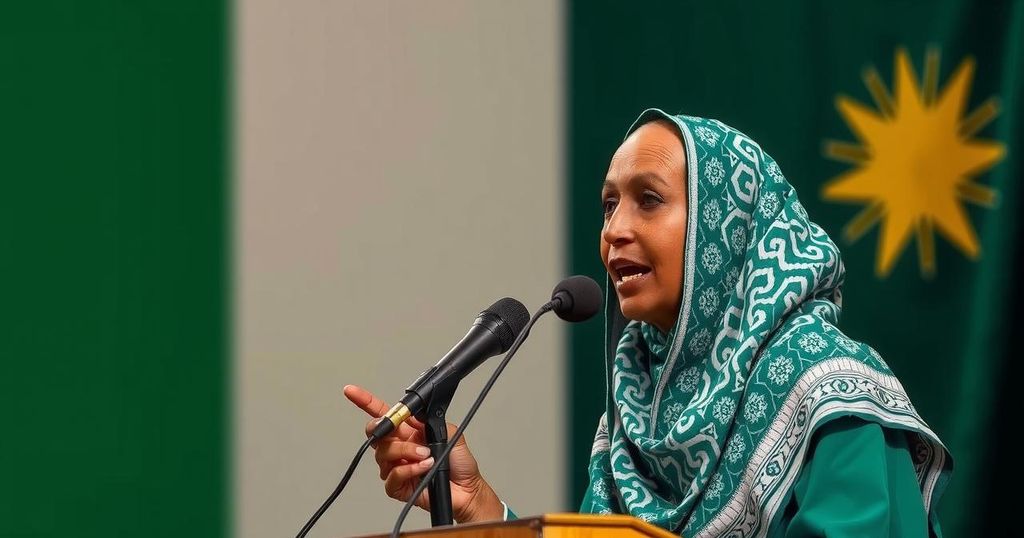World news
ABDIRAHMAN MOHAMED ABDULLAHI, ABDULLAHI, ADDIS ABABA, AFRICA, ASSOCIATED PRESS, DEMOCRACY, ERITREA, ETHIOPIA, GOVERNANCE, HARGEISA, IRRO, KAIS SAIED, KULMIYE, MUSE BIHI ABDI, OPPOSITION, POLITICS, SOMALILAND, SOMALILAND NATIONAL ELECTORAL COMMISSION, WADDANI PARTY
David O'Sullivan
0 Comments
Abdullahi Elected President of Somaliland, Aims for International Recognition
Abdirahman Mohamed Abdullahi (‘Irro’) has been elected president of Somaliland with nearly 64% of the votes, defeating incumbent Muse Bihi Abdi, who received about 35%. The election was delayed for two years due to funding issues. The focus for Abdullahi’s administration will be on reviving the economy and seeking international recognition amid ongoing tensions regarding a controversial agreement with Ethiopia.
Abdirahman Mohamed Abdullahi, known as Irro, has been elected president of Somaliland, a self-declared independent region of Somalia. With nearly 64 percent of the votes, he decisively defeated the incumbent president, Muse Bihi Abdi, who garnered approximately 35 percent. This election, marred by a two-year delay due to funding issues, highlighted the candidates’ promises to revive the struggling economy and secure international recognition for Somaliland. The electoral process took place against a backdrop of increasing political tension as Somaliland has not received official recognition from any country since declaring independence in 1991. Despite maintaining its own government and security structure, its lack of international recognition limits its financial access and travel for its populace. In the wake of this election, the incoming administration is hopeful for a shift in international attitudes, particularly from the United States, regarding Somaliland’s quest for recognition. Moreover, President Abdullahi’s victory may influence ongoing negotiations with Ethiopia over a controversial agreement allowing it sea access, which has implicated broader regional dynamics, including tensions with Somalia. As such, Somaliland’s political shifts are likely to impact its economic and diplomatic trajectory significantly in the near future.
Somaliland declared its independence from Somalia in 1991 amidst the civil war that engulfed the country. Since then, it has established a stable political system, a functioning economy, and its own security apparatus, although it lacks international recognition. This lack of recognition restricts Somaliland’s ability to access international aid and financial markets. The region’s quest for recognition has been a persistent issue, compounded by complex regional dynamics involving neighboring Ethiopia and the central Somali government in Mogadishu, which has historically opposed Somaliland’s claims to sovereignty.
The election of Abdullahi as president of Somaliland signals a significant shift in the region’s political landscape. With a strong mandate from the voters, he seeks to galvanize efforts towards international recognition and improve the local economy. The ramifications of this election extend beyond Somaliland’s borders, potentially affecting its relations with Somalia and Ethiopia. The international community’s response to Lamin’s presidency will be closely monitored by local and regional observers.
Original Source: www.aljazeera.com




Post Comment